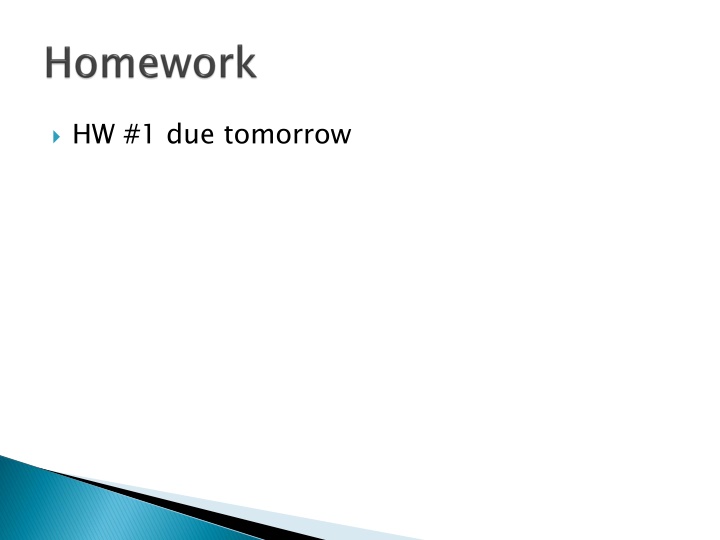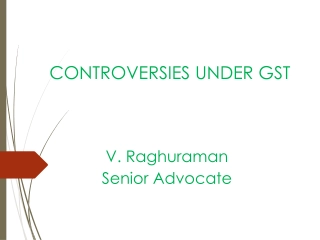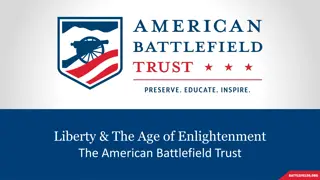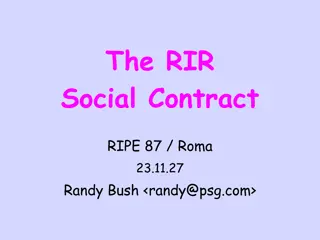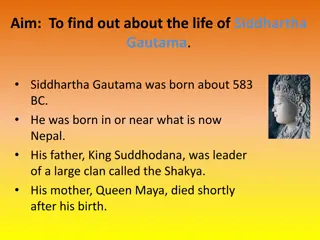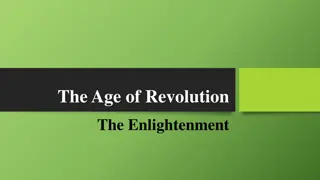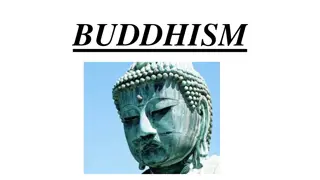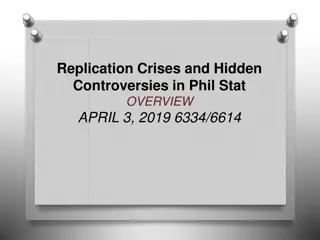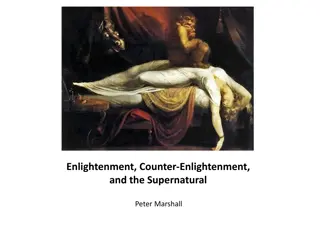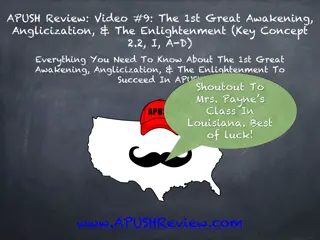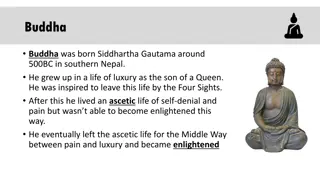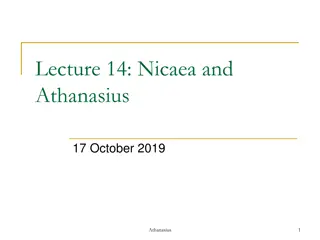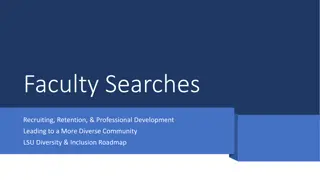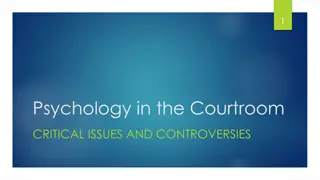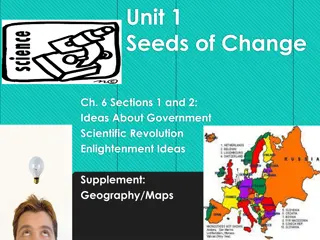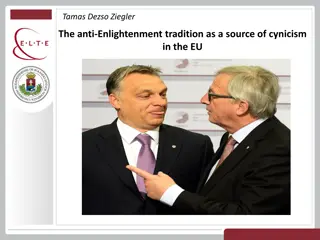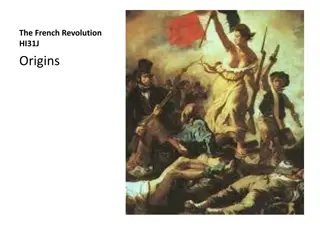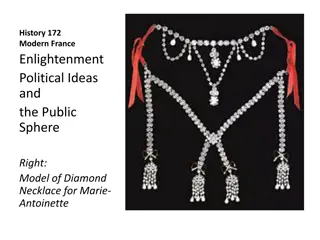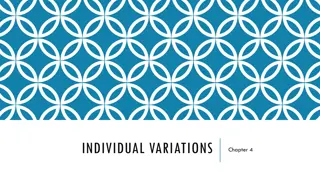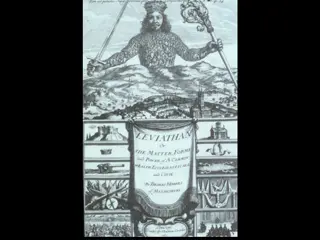Enlightenment Overview: Ideas, Impact, and Controversies
The Enlightenment was a period of intellectual and philosophical growth in Europe, emphasizing reason, progress, and human rights, shaping modern society and governance. It sparked discussions on government, human nature, and individual freedoms, with thinkers like Hobbes proposing differing views on social contracts and the role of authority. Explore the Enlightenment's significance and debates on governance and human nature to gain insights into historical developments and societal structures.
Uploaded on Feb 20, 2025 | 3 Views
Download Presentation

Please find below an Image/Link to download the presentation.
The content on the website is provided AS IS for your information and personal use only. It may not be sold, licensed, or shared on other websites without obtaining consent from the author.If you encounter any issues during the download, it is possible that the publisher has removed the file from their server.
You are allowed to download the files provided on this website for personal or commercial use, subject to the condition that they are used lawfully. All files are the property of their respective owners.
The content on the website is provided AS IS for your information and personal use only. It may not be sold, licensed, or shared on other websites without obtaining consent from the author.
E N D
Presentation Transcript
Do Now: In one sentence, describe what the Enlightenment was.
A. Ideas of the Enlightenment B. Peak of the Enlightenment Problems in society and government can be solved using human reason and knowledge. Human reason will improve people s lives and make the world a better place. Started in England, spread throughout Europe in the late 1600s and 1700s. Paris becomes the center of intellectual activity. Educated people of Europe and the world will lead this movement.
1. Man would be in a constant state of war. Disorder and violence would be everywhere. Life would be nasty, brutish and short.
2. They would be destroyed. There would be no culture, art, literature or economic growth.
3. He views humans as greedy, violent, dishonest, etc. That s why we carry guns when we travel, lock our doors at night, lock up our valuables, etc.
4. Believed the ideal government was an absolute monarchy that could establish order and stability and keep people under control: Social Contract: some freedoms to the king in return for peace, safety and order. People never rebel against their government. Social Contract: People should be willing to give up never have the right to
Do you agree with Hobbes views on government and human nature? Why or why not?
1. A government must have the consent (approval) of the people.
3. If a government tries to take away the natural rights of life, liberty and property from the people, the people have the right to overthrow that government and create a new one.
4. When rulers use their power to benefit themselves and not to serve and help the people. When rulers become tyrannical, people have the right to rebel and form a new government.
How did the ideas of John Locke go on to influence the United States?
